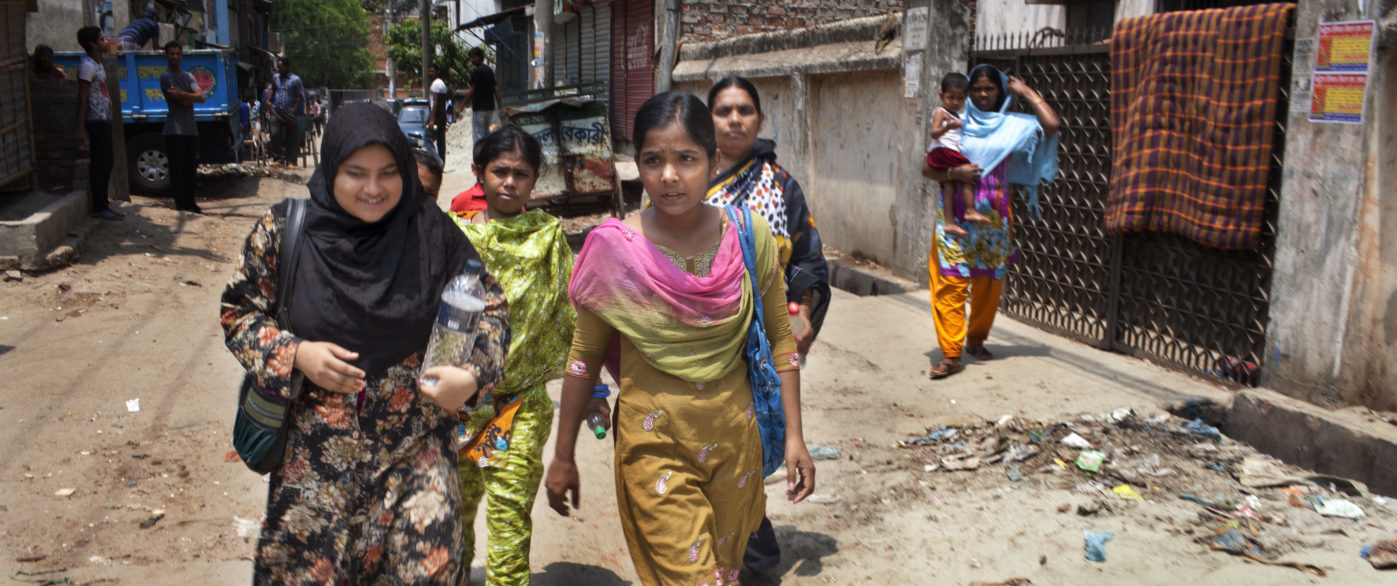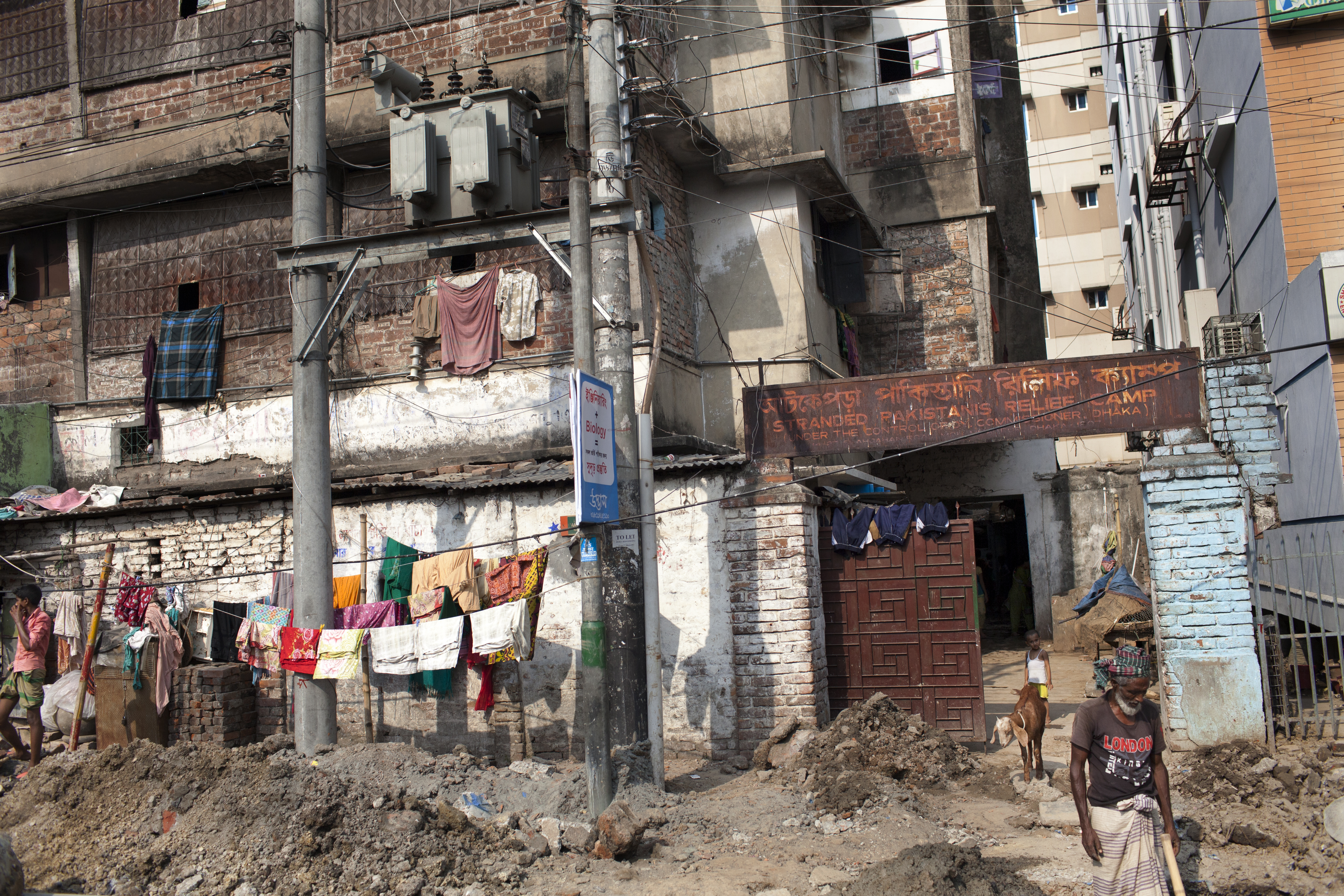
Since 1971 around 300,000 of Bangladesh’s Urdu-speaking minority community, sometimes known as Biharis, have been consigned to live in camps that were set up during Bangladesh’s war of independence. They often live in dire conditions, facing discrimination from mainstream society. Namati and its partner, the Council of Minorities, have established a ground-breaking program that helps them secure ID cards, birth certificates, and other documents that can help them break the cycle of poverty and discrimination.
The camps they live in are still designated as for ‘Stranded Pakistanis’ despite the fact that they have no connection with Pakistan and have lived in Bangladesh since the partition of the Indian sub-continent in the 1940s.

SS Camp, Dhaka. The sign reads ‘Stranded Pakistanis’ despite the inhabitants having no connection with Pakistan.
There are two types of camps for Urdu-speakers. ‘Building Camps’ are former government buildings that were taken over in 1971 and sub-divided into crumbling and overcrowded vertical slums. These images are from Geneva and SS camps in Dhaka. The buildings are in a dangerously bad state – anywhere else they would be unsuitable for habitation – with exposed and frayed wiring throughout and concrete ceilings that regularly crumble, leaving holes that residents pool money to patch as they can.
Many ancestors of the Urdu-speaking minority came from Bihar, India, during Partition in 1947. The camps’ residents are referred to as Bihari, which is a loaded term in Bangladesh. Some trace their ancestry back not to Bihar, but to other regions in India. Usually, it is only a camp address or slight, Urdu-inflected Bengali that distinguishes the community from other Bangladeshis. While ‘passing’ as mainstream Bangladeshis may give easier access to services such as education, for Urdu speakers, ‘passing’ in order to get the basic rights granted by law means abandoning their culture.
A few hours north of Dhaka, Patgudam Camp was created in 1971 from burlap sacks and bamboo. Every rainy season the residents would have to rebuild. Now improvized structures stand just two feet apart and the conditions in the camp are dire. The alleys are shared by residents, goats, and chickens. Houses are tiny single rooms, usually less than 8x8ft, and host entire families. Residents raise their beds to make space for possessions underneath. When it rains, the camp still floods, toilets included.
Samsu Nahad, 60, says her family has tried to leave the camp, but there is no source of income available to them. Nahad wants her sons to save some money so her family can buy land outside the camp. She understands that having a birth certificate is important for getting a job. “It’s something that says you’re Bangladeshi.”
A legal identity can be life-changing. It opens access to essential services like education, healthcare, and banking. Despite a ruling in 2008 that guarantees citizenship for Urdu-speakers, they face serious obstacles to obtaining citizenship documents such as passports and birth certificates.
Since 2013, Namati and the Council of Minorities, a local rights group, have trained paralegals to work with people seeking citizenship documents. In just over a year, ten paralegals and three volunteers were trained to work across all the country’s camps and assisted over 2,000 stateless people.
One paralegal explains that before, people had to go through brokers and pay bribes to secure official documents, and he says: “The passport office is corrupted top to bottom”.
Nahid’s work as a paralegal has changed her life. Although young, she now earns a lot of respect from the community. “Everyone says ‘Salam’ and calls me ‘Madame’,” she says. She feels inspired to continue her work in development by training as a social worker.
All photographs by Bremen Donovan ©2014 Namati